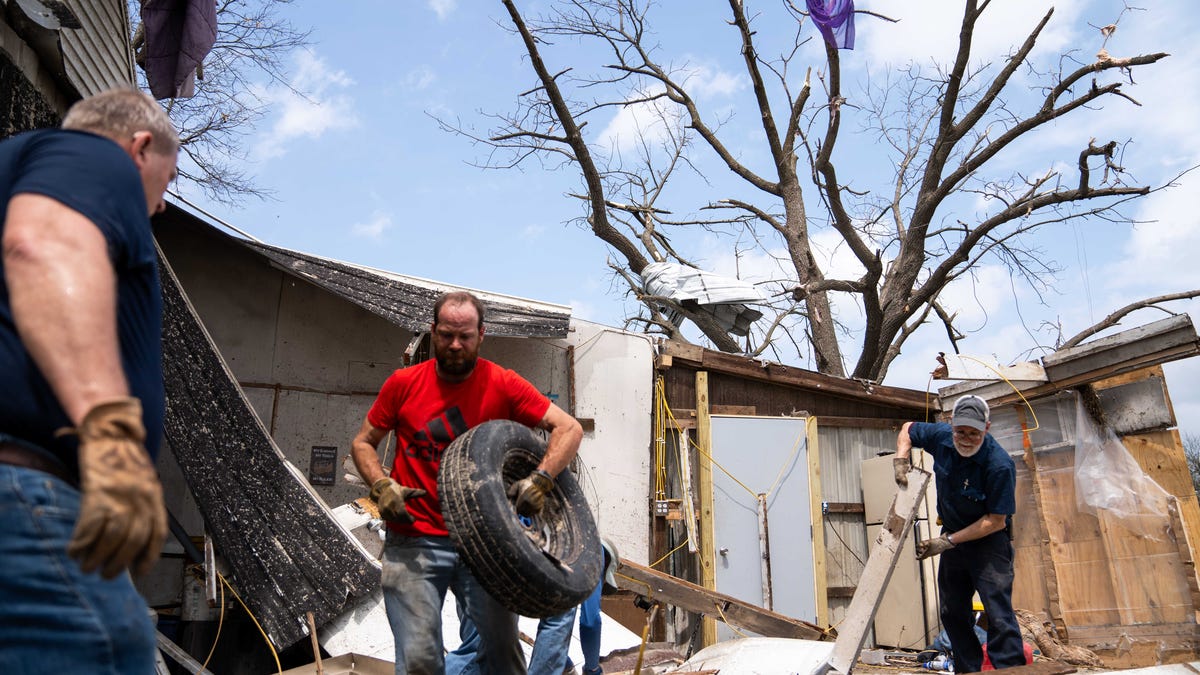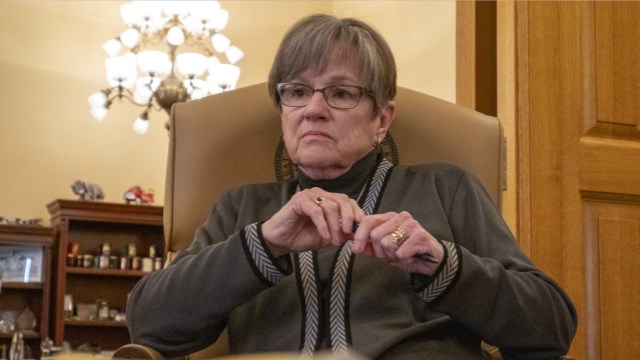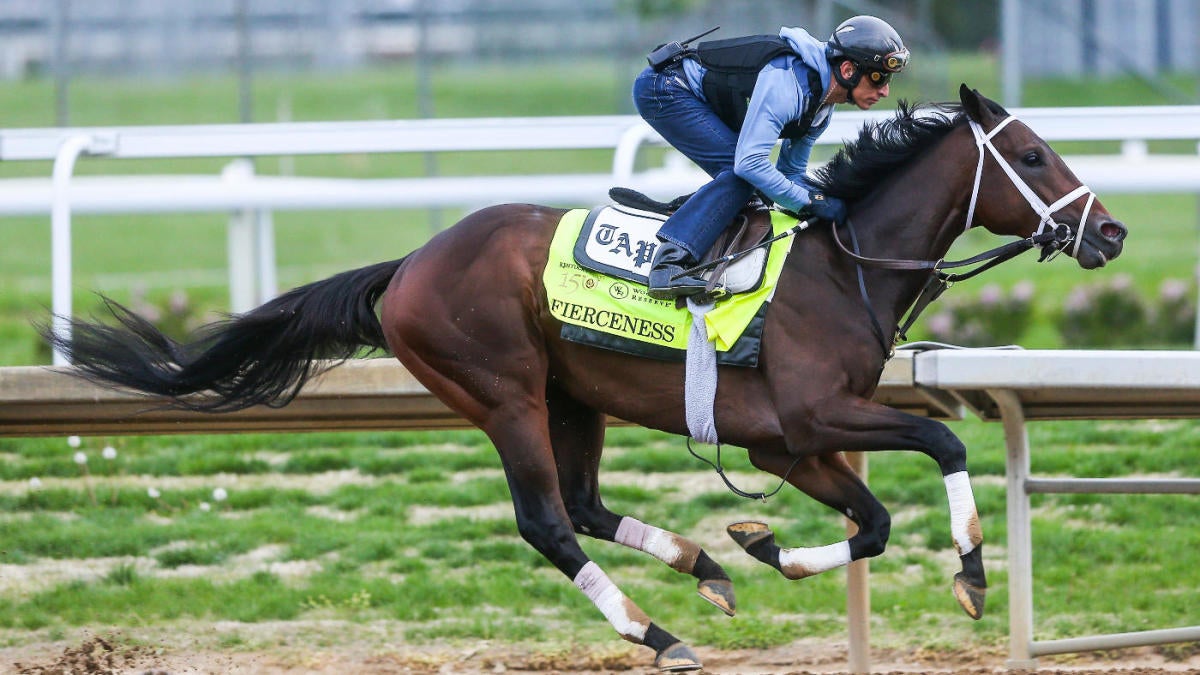World
US intelligence finding shows China surging equipment sales to Russia to help war effort in Ukraine
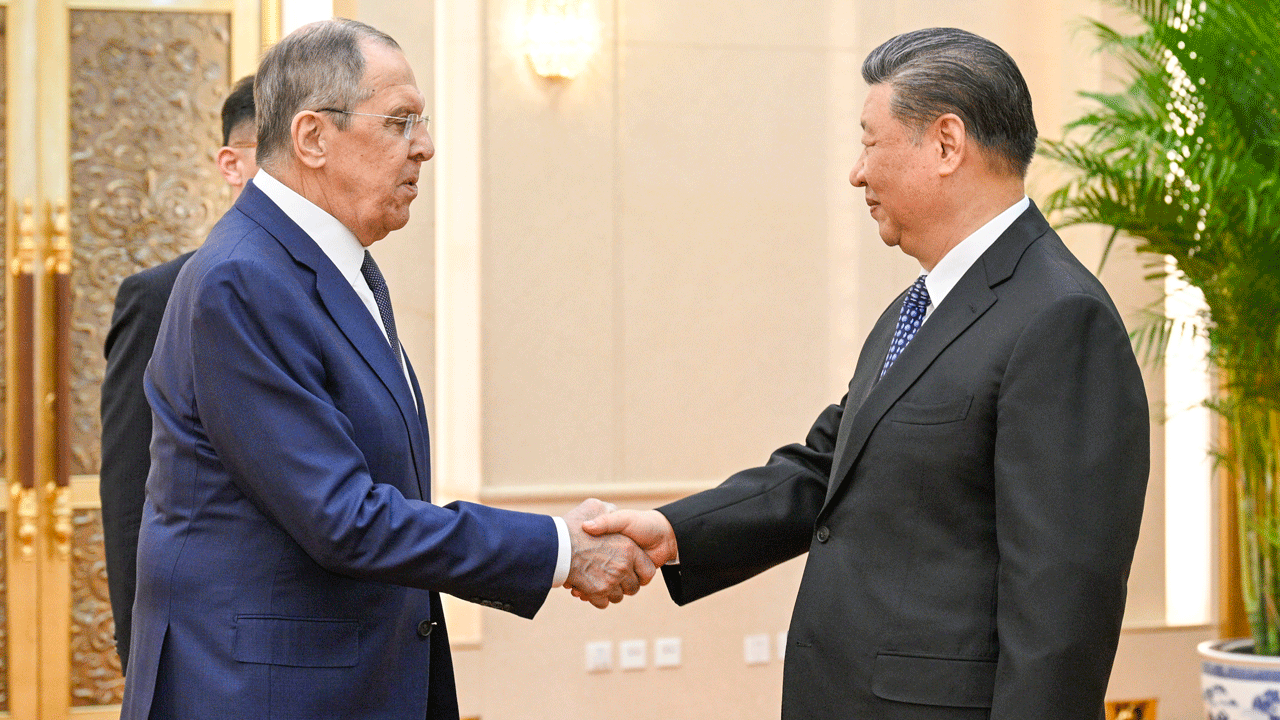
WASHINGTON (AP) — China has surged sales to Russia of machine tools, microelectronics and other technology that Moscow in turn is using to produce missiles, tanks, aircraft and other weaponry for use in its war against Ukraine, according to a U.S. assessment.
Two senior Biden administration officials, who discussed the sensitive findings Friday on the condition of anonymity, said that in 2023 about 90% of Russia’s microelectronics came from China, which Russia has used to make missiles, tanks and aircraft. Nearly 70% of Russia’s approximately $900 million in machine tool imports in the last quarter of 2023 came from China.
US HOUSE FOREIGN AFFAIRS COMMITTEE HEAD SAYS PARTNERSHIP BETWEEN CHINA, RUSSIA IS GREATEST THREAT SINCE WWII
Chinese and Russian entities have also been working to jointly produce unmanned aerial vehicles inside Russia, and Chinese companies are likely providing Russia with nitrocellulose used in the manufacture of ammunition, the officials said. China-based companies Wuhan Global Sensor Technology Co., Wuhan Tongsheng Technology Co. Ltd. and Hikvision are providing optical components for use in Russian tanks and armored vehicles.
In this photo released by Xinhua News Agency, Russian Foreign Minister Sergey Lavrov, left, and Chinese President Xi Jinping meet at the Great Hall of the People in Beijing on April 9, 2024. China has surged sales to Russia of machine tools, microelectronics and other technology that Moscow in turn is using to produce missiles, tanks, aircraft and other weaponry. That’s according to two senior Biden administration officials who discussed the sensitive findings on the condition of anonymity. Russia’s microelectronics came from China, where Russia has used missiles, tanks and aircraft. (Li Xueren/Xinhua via AP)
The officials said Russia has received military optics for use in tanks and armored vehicles manufactured by Chinese firms iRay Technology and North China Research Institute of Electro-Optics, and China has been providing Russia with UAV engines and turbojet engines for cruise missiles.
Russia’s semiconductor imports from China jumped from $200 million in 2021 to over $500 million in 2022, according to Russian customs data analyzed by the Free Russia Foundation, a group that advocates for civil society development.
Beijing is also working with Russia to improve its satellite and other space-based capabilities for use in Ukraine, a development the officials say could in the longer term increase the threat Russia poses across Europe. The officials, citing downgraded intelligence findings, said the U.S. has also determined that China is providing imagery to Russia for its war on Ukraine.
The officials discussed the findings as Secretary of State Antony Blinken is expected to travel to China this month for talks. Blinken is scheduled to travel next week to the Group of 7 foreign ministers meeting in Capri, Italy, where he’s expected to raise concerns about China’s growing indirect support for Russia as Moscow revamps its military and looks to consolidate recent gains in Ukraine.
President Joe Biden has previously raised his concerns directly with Chinese President Xi Jinping about Beijing indirectly supporting Russia’s war effort.
While China has not provided direct lethal military support for Russia, it has backed it diplomatically in blaming the West for provoking Russian President Vladimir Putin’s decision to launch the war and refrained from calling it an invasion in deference to the Kremlin.
China has repeatedly said it isn’t providing Russia with arms or military assistance, although it has maintained robust economic connections with Moscow, alongside India and other countries, amid sanctions from Washington and its allies.
“The normal trade between China and Russia should not be interfered or restricted,” said Liu Pengyu, spokesman of the Chinese Embassy in Washington. “We urge the U.S. side to refrain from disparaging and scapegoating the normal relationship between China and Russia.”
Xi met in Beijing on Tuesday with Russian Foreign Minister Sergey Lavrov, who heaped praise on Xi’s leadership.
Russia’s growing economic and diplomatic isolation has made it increasingly reliant on China, its former rival for leadership of the Communist bloc during the Cold War.
Treasury Secretary Janet Yellen, who returned to Washington this week from a visit to Beijing, said she warned Chinese officials that the Biden administration was prepared to sanction Chinese banks, companies and Beijing’s leadership, if they assist Russia’s armed forces with its ongoing invasion of Ukraine.
The Democratic president issued an executive order in December giving Yellen the authority to sanction financial institutions that aided Russia’s military-industrial complex.
“We continue to be concerned about the role that any firms, including those in the PRC, are playing in Russia’s military procurement,” Yellen told reporters, using the initials for the People’s Republic of China. “I stressed that companies, including those in the PRC, must not provide material support for Russia’s war and that they will face significant consequences if they do. And I reinforced that any banks that facilitate significant transactions that channel military or dual-use goods to Russia’s defense industrial base expose themselves to the risk of U.S. sanctions.”
The U.S. has frequently downgraded and unveiled intelligence findings about Russia’s plans and operations over the course of the more than 2-year-old war with Ukraine.
Such efforts have been focused on highlighting plans for Russian misinformation operations or to throw attention on Moscow’s difficulties in prosecuting its war against Ukraine as well as its coordination with Iran and North Korea to supply it with badly needed weaponry. Blinken last year spotlighted intelligence that showed China was considering providing arms and ammunition to Russia.
The White House believes that the public airing of the intelligence findings has led China, at least for now, to hold off on directly arming Russia. China’s economy has also been slow to emerge from the COVID-19 pandemic. Chinese officials could be sensitive to reaction from European capitals, which have maintained closer ties to Beijing even as the U.S.-China relationship has become more complicated.
Meanwhile, China on Thursday announced rare sanctions against two U.S. defense companies over what it called their support for arms sales to Taiwan, the self-governing island democracy Beijing claims as its own territory to be recovered by force if necessary.
The announcement freezes the assets of General Atomics Aeronautical Systems and General Dynamics Land Systems held within China. It also bars the companies’ management from entering the country.
Filings show General Dynamics operates a half-dozen Gulfstream and jet aviation services operations in China, which remains heavily reliant on foreign aerospace technology even as it attempts to build its own presence in the field.
The company also helps make the Abrams tank being purchased by Taiwan to replace outdated armor intended to deter or resist an invasion from China.
General Atomics produces the Predator and Reaper drones used by the U.S. military.

World
Hamas delegation due in Cairo on Monday for Gaza ceasefire talks

World
Ukraine's Zelenskyy urges faster US weapon deliveries
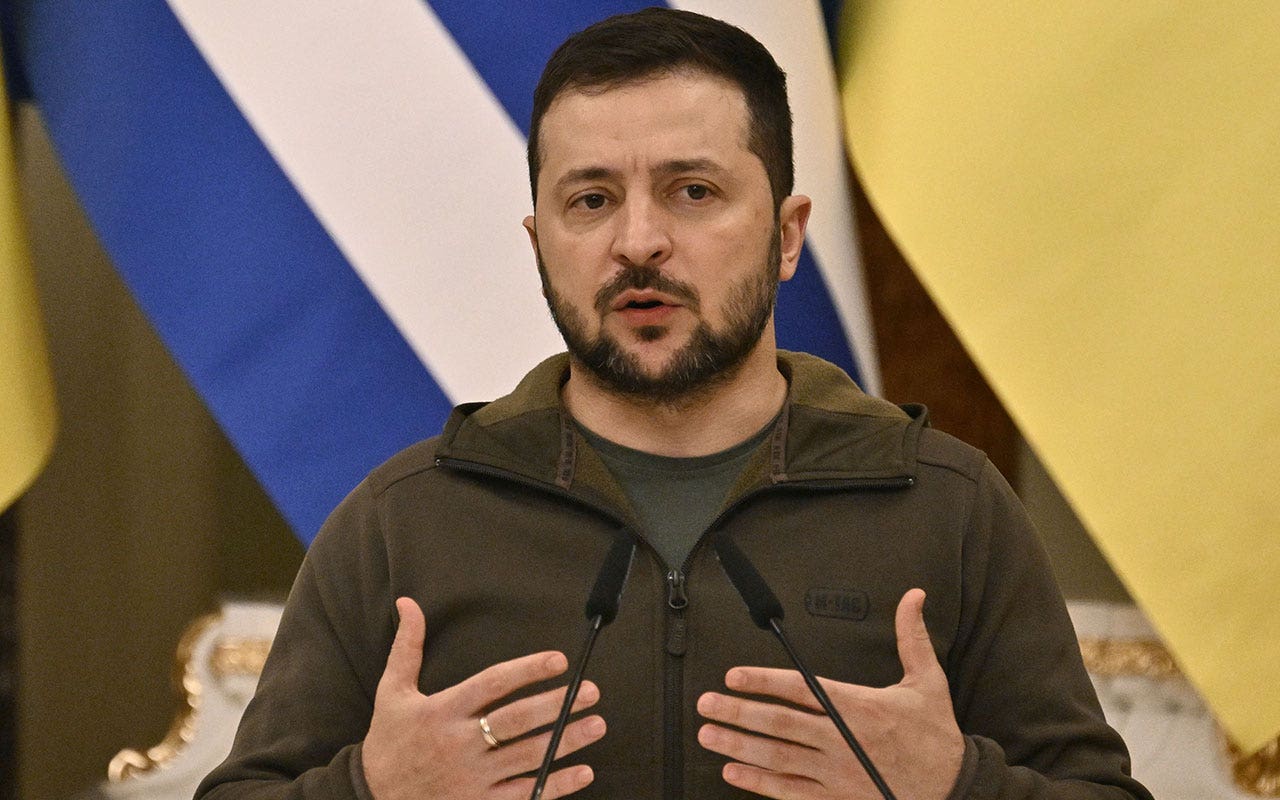
- President Volodymyr Zelenskyy said on Monday that U.S. weapons have begun to arrive in Ukraine.
- Zelenskyy voiced the urgency of accelerating the process due to advancing Russian forces attempting to exploit the situation.
- He also mentioned the lack of significant positive developments in timely support for the Ukrainian army.
President Volodymyr Zelenskyy said on Monday that vital U.S. weapons were starting to arrive in Ukraine in small amounts.
He said that the process needed to move faster.
This is the result of advancing Russian forces trying to take advantage.
REPORTER’S NOTEBOOK: UKRAINE’S ZELENSKYY OPENS UP ON US AID, ISRAEL, TRUMP
Zelenskyy spoke during a joint news conference in Kyiv alongside visiting NATO chief Jens Stoltenberg.
President Volodymyr Zelenskyy said on Monday that vital U.S. weapons were starting to arrive in Ukraine in small amounts and that the process needed to move faster as advancing Russian forces were trying to take advantage. (GENYA SAVILOV/AFP via Getty Images)
During the conference, he said the situation on the battlefield directly depended on the speed of ammunition supplies to Ukraine.
“Timely support for our army. Today I don’t see anything positive on this point yet. There are supplies, they have slightly begun, this process needs to be sped up,” he said.
World
Nine on trial in Germany over alleged far-right coup plot

Nine people charged with terrorism in connection with an alleged far-right plot to topple the German government went on trial on Monday in one of three linked cases.
The trial – which opened on Monday in Stuttgart – is the first to open in relation to the purported conspiracy, which came to light in late 2022. It is focused on those defendants of the Reich Citizens group who allegedly were part of its so-called military arm, German news agency dpa reported.
Federal prosecutors in December filed terrorism charges against a total of 27 people, one of whom has since died.
Nine other suspects, among them a self-styled prince and a former far-right lawmaker, will go on trial on 21 May at a Frankfurt state court in the most prominent of the three cases. The other eight will go on trial in Munich on 18 June.
On trial in the Frankfurt case includes Heinrich XIII Prince Reuss, whom the group allegedly planned to install as Germany’s provisional new leader; Birgit Malsack-Winkemann, a judge and former lawmaker with the far-right Alternative for Germany party; and a retired paratrooper.
The proceedings of the three cases are expected to last well into 2025.
German Interior Minister Nancy Faeser said on public broadcaster ZDF that the trial “shows the strength of our rule of law that the largest terrorist network of Reich Citizens to date… has to answer for its militant plans to overthrow the government.”
Prosecutors have said that the accused believed in a “conglomerate of conspiracy myths,” including Reich Citizens and QAnon ideology, and were convinced that Germany is ruled by a so-called deep state.
Adherents of the Reich Citizens movement, or Reichsbuergerbewegung in German, reject Germany’s postwar constitution and have called for bringing down the government, while QAnon is a global conspiracy theory with roots in the US.
According to prosecutors, the group planned to storm into the parliament building in Berlin and arrest lawmakers. It allegedly intended to negotiate a post-coup order primarily with Russia, as one of the allied victors of World War II.
The nine defendants at the Stuttgart trial are accused of membership in a terrorist organisation and “preparation of a high treasonous enterprise.” One of the defendants is also on trial for attempted murder, dpa reported.
Most of the nine suspects in the Frankfurt trial are also charged with membership in a terrorist organisation and “preparation of high treasonous undertaking.” The other eight alleged members of the group have been charged in separate indictments at the court in Munich.
-

 Kentucky1 week ago
Kentucky1 week agoKentucky first lady visits Fort Knox schools in honor of Month of the Military Child
-

 News1 week ago
News1 week agoIs this fictitious civil war closer to reality than we think? : Consider This from NPR
-

 World1 week ago
World1 week agoShipping firms plead for UN help amid escalating Middle East conflict
-

 Politics1 week ago
Politics1 week agoICE chief says this foreign adversary isn’t taking back its illegal immigrants
-

 Politics1 week ago
Politics1 week ago'Nothing more backwards' than US funding Ukraine border security but not our own, conservatives say
-

 News1 week ago
News1 week agoThe San Francisco Zoo will receive a pair of pandas from China
-

 World1 week ago
World1 week agoTwo Mexican mayoral contenders found dead on same day
-

 Politics1 week ago
Politics1 week agoRepublican aims to break decades long Senate election losing streak in this blue state


